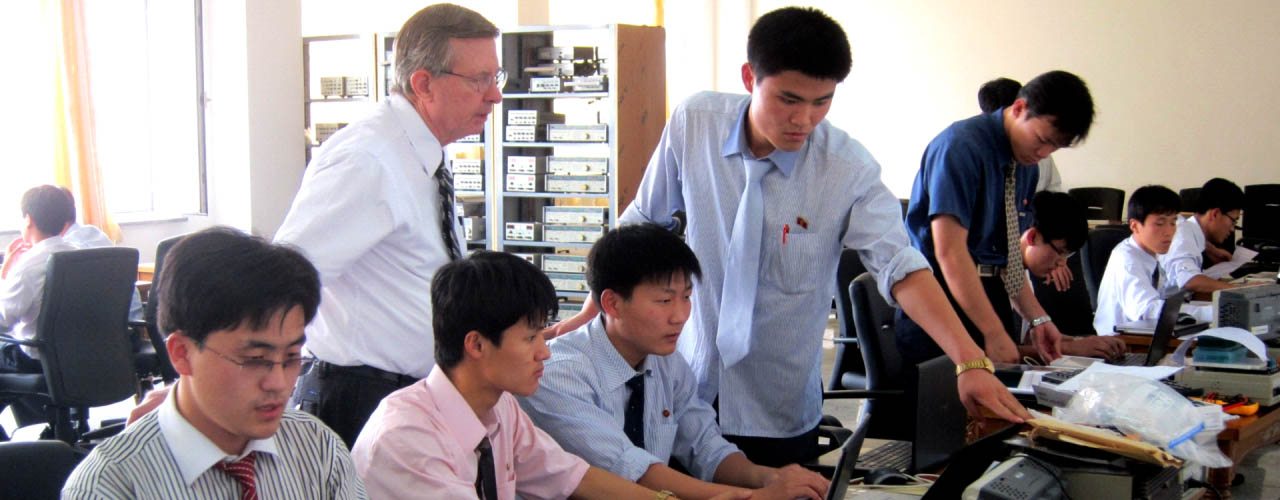
Welcome to the College Engineering at the Pyongyang University of Science and Technology (PUST). The mission of the College of Engineering is to develop the future leaders of the DPR Korea, who will work to build a strong IT infrastructure, which will help to develop a prosperous and sustainable environment, by educating students with both fundamental and advanced techniques in electronics and computer science. In order to achieve our mission, we strive to implement the following specific objectives:
- Strong Foundation. Offering a systematic and thorough coverage of fundamental courses in electrical engineering and computer science, with emphasis on a strong theoretical background.
- Adaptive Curriculum. Adapting the academic curriculum to stay current in the latest technologies as well as the needs of the people of the DPR Korea. This will require research to understand the pressing needs of the Korean people, as well as the latest technologies that can be used to address those needs. Finally, offering advanced electives, which are relevant to today’s state-of-the-art technologies.
- Application-driven Research. Developing a strong application-based research program, which is tightly integrated with the educational curriculum. Research should seek to provide solutions to the most pressing needs of the Korean people.
College of Engineering Undergraduate Courses
During the first year of major study all College of Engineering students take a common set of cross-major core courses.
The last semester of study is devoted to a practicum experience culminating in a senior thesis presentation.
Computer Science
- Algorithm Design
- Artificial Intelligence
- C Programming
- Compiler Design
- Computer Hardware
- Computer Organization/Architecture
- Data Communication & Network
- Data Structures
- Database Systems
- Decision-Making Support Systems
- Image Processing I
- Image Processing II
- Machine Learning
- Multimedia Coding
- Natural Language Processing
- Network Security
- Operating Systems
- Pattern Recognition
- Software Engineering
- Speech Processing
- Web Programming
- Web Frameworks
Electrical Engineering
- Analog Electronic Circuits
- Antenna Engineering
- Circuit Analysis
- Communication Networks
- Communication Theory
- Digital Communications
- Digital Logic Fundamentals
- Digital Signal Processing
- Digital Logic Systems Design
- Embedded Systems
- Integrated Circuit Design
- Mobile Communications
- Power Electronics
- RF Circuit Theory and Design
- Semiconductor Devices
- Signals and Systems
College of Engineering Graduate Courses
- Adaptive Signal Processing
- Advanced VLSI Design
- Bioinformatics
- Cloud Computing
- Communication Network Design
- Electronic Commerce
- Modern Intelligent Processes
- Modern Software
- Parallel Programming
- Power Line Communication
- Project Design and Research Methods
- RFID Theory and Applications
- Statistical Methods for Research
- Virtual Reality
- Wireless Sensor Networks
